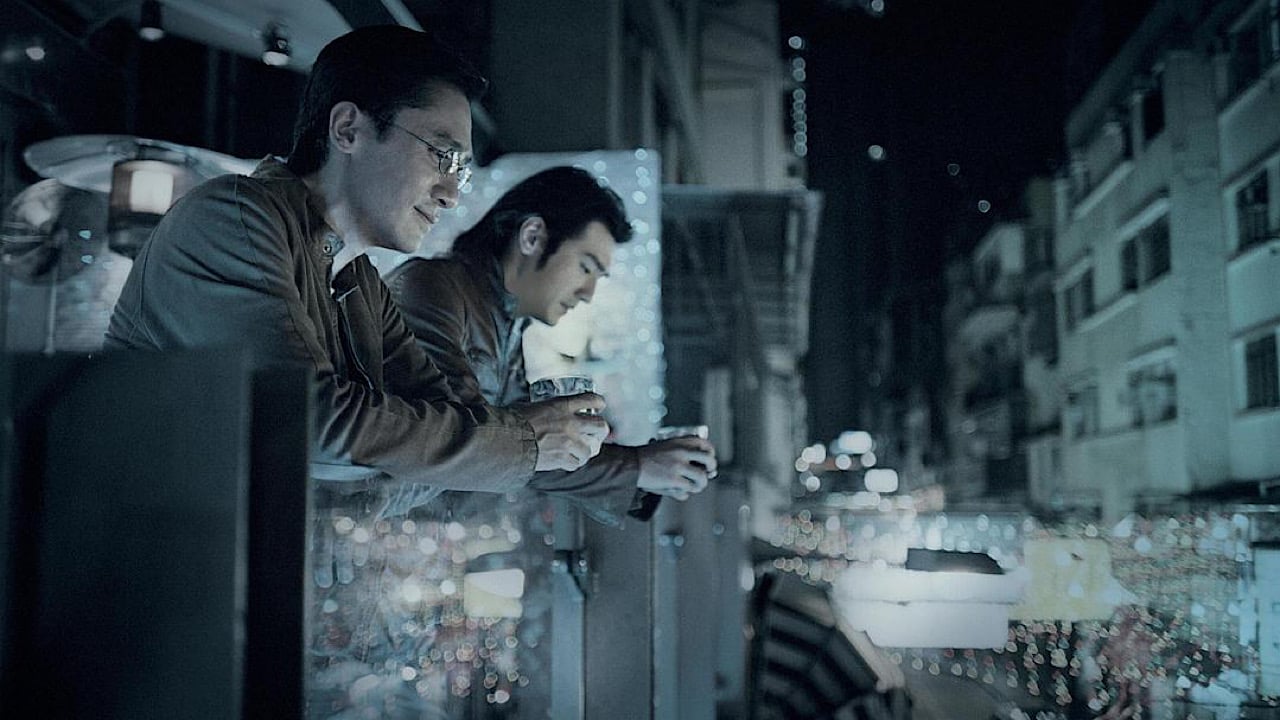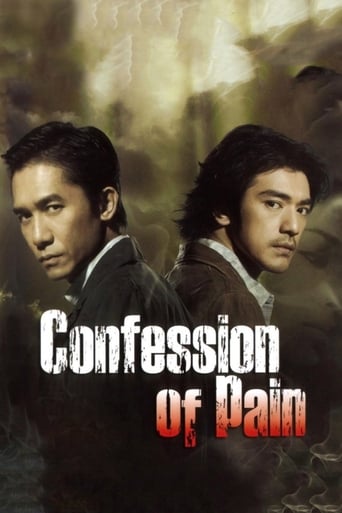



Self-important, over-dramatic, uninspired.
People are voting emotionally.
A lot of fun.
Worth seeing just to witness how winsome it is.
All right, it is a so-so movie. I was disappointed the film had no mystery, the main point watching this is the mystery but I did not see it. The story is somehow confusing as they jumped from one scene to another. Hei and Bong were solving a case which Susan's so-called father was murdered. Now the director want to make you feel how the characters is feeling. That's pain. No mystery but is painful. No mystery, if the directors had not chosen to show the bad guy too early, it would had been better. But that's not the main point in this movie, the directors want the pain. The cast and the story is just okay, with the beautiful music as in the background, the film is okay. And the music sent chills up my spine, it is somehow spooky. If you wanna kill some time, watch it on DVD. Not really worth watching this in cinema. Those who want to crack a mystery, this is not for you.
View MoreThis time of the relationship between Hong Kong and China. Andy Lau's "Internal Affairs" examined the roles with far greater interest. This time, though, Lau has sunk to the level of soap, which is sad to see, especially considering how sophisticated his previous work is. Shu Qi is criminally misused to boot. "Confession of Pain" in no way compares to "The Banquet," "Curse of the Golden Flower," "Mo Gong," "Three Times," all of which function on more than one level without sinking into the error of this film, which is not so much paranoia as mawkish self-absorption.As for camera work, set design, sound, and editing, this movie feels more like a commercial than a feature film. The effect is to cheapen what otherwise might have been great and deep. The same goes for the acting, which seems to have been texted in.
View MoreI LOVE their work on Infernal Affairs. To some extent, I do compare COP with IA but I I've debated with myself not to be unfair with my judgement - because they are quite different.Confessions of Pain is very real in nature. I am beginning to notice that many avoid stereotyping a person as a good 'cop' and a bad 'cop'. And I echo this. I don't think Tony's character is absolutely 'wrong'. Don't get me wrong as I am not suggesting that his ill-suppressed pain should be taken in the context of crime but we must 'honor his hatred' for his parents' brutal murder. I must confess that the pain (in this piece of art) can be more e.g. poignant dilemma faced when the truth is revealed about his wife's identity (yes, I am speaking in codes here because my friend spoiled the suspense of 6th Sense by revealing the ending, and I ain't want to be that culprit!).In essence, I like the movie and the cast is marvellous.
View MoreConfession of Pain Much like the acclaim Infernal Affair, however, this is less the drama and suspense. Tony Leung is detective Hei for the Hong Kong police force, Homicide department, and Takeshi (as Bong) is his colleague. The film begins with a routine investigation of a homicide case, trailing a suspect that is involved in a serial raping case. After the suspect hops in a taxi with a female companion from a bar during a Christmas celebration, the audience is able to enjoy an excellent choreography of car tailing, with careful art direction of scene shots.The heartbreaker occurs after the crime investigation, with Bong returning home in the morning and finds his girlfriend asleep in bed. At the start of the film, Bong had a causal conversation with Hei about the stale relationship mostly due to his insensitivity, unable to feel the passion to love his beloved. After some reflection, he steals a kiss and was horrific by her cold lips. Upon turning over the bed covers, he was shocked to find her wrists, both slash. The next scene jumps to the hospital when he realized his love was gone forever.The film fast-forward three years to 2006, where Bong had left the police force, striking out on his own as a private investigator, and also an alcoholic. Hei remains good friends with Bong, meeting up occasionally, and is married to Susan. Bong is still brooding over the lost of his love, drowning his pain through the many glasses of hard liquor which he once detested and conducting his own investigation on the motive of his love's suicide.Suddenly, there is a twist in the story; shown in black and white, as of a surveillance camera, the act of a gruesome crime perpetuated by Hei the murder of his father-in-law and his lackey. This was perhaps the act revealed to the audience, informing us of who is the villain, what remains, is the motive. Normal transmission resumes to the aftermath of the crime, with Susan in the police station assisting in the investigation. Susan was emotionless by the whole episode, perhaps due to her past misgivings towards her father, but suspected otherwise when the investigation reveals two burglars ransacking her father's mansion that there might be more than what the evidence shows. Because Hei was considered a suspect Susan's father was a tycoon and could not be in-charge of further investigation, Susan took the initiative and request Bong to conduct a private investigation, with the police assisting with archives of data.So the remaining part of the film reveals the cat and mouse game between Hei and Bong. The former covering his tracks, the latter revealing the motive of the unknown suspect.The pace seems to slow off by then, and with the villain shown at the start of it, only the element of motive why did Hei commit such a crime keeps the audience going. Cause and effect. Confession of Pain is an expression of pain felt by Hei and Bong; like Bong, his succumb to liquor to nullify the pain over his lost love, and the relentless pursuit for the truth of her death; like Hei, though the cold blooded murder of his father-in-law, his actions of deliberate precision carries much weighted thoughts and emotional pain, masked forever in him, barely revealed. The confession comes at the end, through each realization of the life each has, rather than wallowing in pain brought by memories of the past, the only path out of the vicious cycle is to look forward in life. Alas, only one of them can come out of it.Director Wai Keung Lau and Siu Fai Mak did a nice screenplay, but it was not as suspenseful as Infernal Affair, there seems to be some element missing, which slips my mind. Moreover, Tony Leung was quite deadpan throughout the film, and that leaves out his trademark charisma. Pity. The role should have been given to Andy Lau instead, and Tony could take over Takeshi's role not to discredit his acting, but it would be nice to see Andy and Tony tag team again since their last collaboration in Infernal Affairs.Ah, the missing element there is not a strong supporting role in the film to disperse the weight of the main actors.
View More